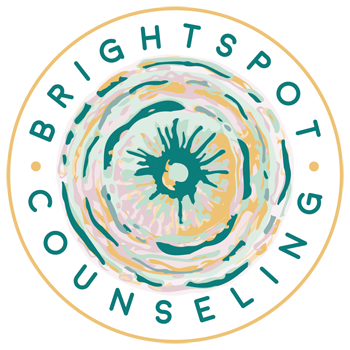The holiday season, with its festivities and gatherings, often brings joy and togetherness. However, for many, it can also holiday depression and anxiety, and a host of unhealed traumas. According to the National Alliance on Mental Illness (NAMI), approximately 64% of people with mental health conditions report that the holidays make their symptoms worse.
Maybe a family member made an unsolicited comment about your body, your job or your partner, or maybe they rejected your reality as you reminisced about some of the unhealthy and really toxic interactions you had with them as a child. Perhaps your perfectionism was triggered, or maybe this was your first or even your 15th year of having to split time between families because of uncomfortable dynamics and family separations. Maybe this was your first holiday celebration without alcohol. Perhaps you’re now coping with the financial strain from the holidays or the disappointment that your expectations weren’t met. Perhaps your grandparent’s dementia is getting worse and they didn’t recall your name this year.
Whatever it was, let’s agree that if you’re reading this, it was heavily loaded and hard and you got through it. So that’s worth celebrating… but what do we do now that you’ve unraveled and there’s no one there to help you pick up the pieces? Or what if there is someone that’s there, but their attempts are futile, triggering or downright unhelpful? Now what?
1. Self care and compassion:
Take a moment to breathe and reflect on your needs. Consider indulging in a soothing bath, practicing mindfulness, or enjoying a quiet cup of tea.
Here are some more ideas for self care to reduce holiday anxiety and depression:
Aromatherapy: Use essential oils or scented candles to create a calming atmosphere at home. Scents like lavender, chamomile, or eucalyptus can promote relaxation and stress relief.
Reading and Escapism: Immerse yourself in a good book, whether it’s fiction, non-fiction, or a self-help book. Reading can transport you to another world and offer valuable insights.
Nature Walks: Spend time outdoors, connect with nature, and go for a leisurely walk. Moreover, the fresh air and natural surroundings can rejuvenate your mind and body.
Creative Outlets: Engage in a creative hobby or activity that you enjoy, such as painting, writing, playing a musical instrument, or crafting. Creative expression can be profoundly therapeutic.
Digital Detox: Take a break from screens, including smartphones, tablets, and computers. Unplugging from technology can significantly reduce stress and improve sleep quality.
Yoga or Exercise: Consider incorporating physical activity into your routine, like yoga, jogging, or dancing. Exercise releases endorphins, thereby boosting your mood.
Healthy Eating: Nourish your body with nutritious meals and stay hydrated. Eating well-balanced meals can have a positive impact on your energy levels and overall well-being.
Journaling: Keep a journal to jot down your thoughts, feelings, and reflections. Writing can help you process emotions and gain clarity.
Spa Day at Home: Treat yourself to a DIY spa day with facials, a bubble bath, and soothing music. Pampering yourself can be a wonderful way to relax and unwind.
Practice Gratitude: Take a moment each day to express gratitude for the positive aspects of your life. Cultivating gratitude can foster a positive mindset.
Set Boundaries: Learn to say no when necessary and establish healthy boundaries in your personal and professional life. This proactive approach helps prevent burnout and reduces stress.
Relaxation Techniques: Explore various relaxation techniques, such as deep breathing exercises, progressive muscle relaxation, or guided imagery, to calm your mind and body.
Quality Sleep: Prioritize good sleep hygiene by maintaining a consistent sleep schedule and creating a comfortable sleep environment. Quality sleep is crucial for mental and physical health.
2. Mindfulness for Holiday Stress:
Dedicate time to practice mindfulness meditation. Find a quiet space, focus on your breath, and let go of stress and worries. This practice can help you center yourself and reduce anxiety. Mindfulness is a powerful practice that involves being fully present in the moment, without judgment or distraction. After an emotionally taxing holiday season, it can be a valuable tool for regaining balance and inner peace.
Mindfulness allows you to acknowledge your thoughts and emotions without trying to change them, fostering self-compassion and reducing self-criticism. By staying in the present, you can break free from ruminating on past holiday stressors or worrying about the future. It provides a mental reset, helping you center yourself, manage stress, and reestablish a sense of calm. So, whether it’s through meditation, deep breathing, or simply paying attention to your surroundings, incorporating mindfulness into your post-holiday routine can be a transformative way to heal and restore your mental well-being. Does going inside make you feel more anxious? Try a walking meditation and focus on your surroundings: https://positivepsychology.com/mindful-walking/
3. Seek support and Professional help:
Reaching out to friends for emotional support is an important step in times of need to reduce holiday anxiety and depression. Start the conversation with honesty and vulnerability. You might say something like, “Hey [Friend’s Name], I’ve been going through a tough time lately, and I could use someone to talk to. Would you be available to chat or hang out sometime soon?” By expressing your feelings and asking for their time, you’re opening the door for them to offer support.
Remember that true friends are there for you when you need them, so don’t hesitate to reach out and share what’s on your mind. Sometimes, we don’t have supportive people in our lives or it feels safer to talk to a therapist. In that case, if you are struggling to cope after the holidays, don’t hesitate to reach out to a qualified therapist at Bright Spot Therapy (contact us at 248.296.3104 or explore our website).
Our therapists are ready to start the new year off strong by supporting you in tackling life’s challenges. If you’re looking for therapy in Metro Detroit, therapy that is covered by insurance (Blue Cross Blue Shield, Blue Care Network, Priority Health, Medicare, Aetna, etc), look no further.
If you’re interested in reading more about how to cope with holiday anxiety and depression, check out these posts below:
- 6 Ways to Recharge if Your Holidays Have Been Stressful – Bustle
- Cope with Post Holiday Syndrome – WikiHow
- Why New Year’s Resolutions Can Be Counterproductive. – https://brightspottherapy.com/5-reasons-why-new-years-resolutions-can-be-counterproductive/





